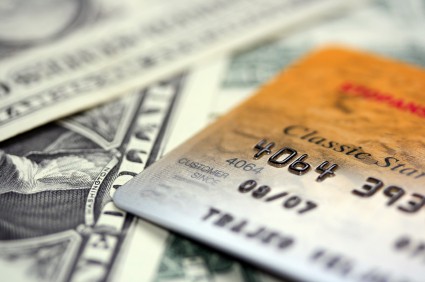What is Bitcoin? Why is Atilus accepting Bitcoin? Have Zach & Harry gone crazy jumping on to the latest Ponzi Scheme bandwagon? Atilus is the first Internet Advertising in the country to accept Bitcoin – and we’re proud of this designation! I wanted to write this post as a more detailed explanation about Bitcoin and why we decided to adopt this new payment technology and where we think the future lies.
What is Bitcoin?
At its simplest Bitcoin is digital cash. Extending this a little further – Bitcoin is programmable money. If you have no desire to understand some of the basics or dive deeper into how Bitcoin works – you can just skip over this part now – and skip down to “why we’re accepting Bitcoin.”
The History of Money
 To fully understand Bitcoin, and it’s potential to change the world, you first have to understand money. I recently was watching a presentation on Bitcoin, money, and the state of the world economies and the presenter made an interesting point – “We spend our entire lives dedicated to the pursuit of wealth, to attain money. For some of us that’s even our sole focus. However, very few of us know how money actually works.”
To fully understand Bitcoin, and it’s potential to change the world, you first have to understand money. I recently was watching a presentation on Bitcoin, money, and the state of the world economies and the presenter made an interesting point – “We spend our entire lives dedicated to the pursuit of wealth, to attain money. For some of us that’s even our sole focus. However, very few of us know how money actually works.”
Money is simply an idea, a tool to translate. And perhaps more accurately, money is an operating system in which a civilizations debts, and credits operate – a tool or ledger to remind us who has what. Currency, refers to the unit of measure and medium of money. In our current lives the USD (United States dollar) is the main form of currency. The world’s reserve currency is the U.S. Dollar – meaning all other currencies (in a way) translate back to the dollar, and only certain goods can be purchased in the dollar (oil for example). But, this wasn’t always the case. There have been all kinds of currencies and money systems used over time – we all probably know about gold, but everything from sea shells to STICKS have been used as money (or currency) in the past. Throughout history civilization has bounced back and forth between money systems that were based on a finite number of things and fiat currency (money that can be created from nothing and is “tied” to nothing). Although there’s nothing inherently wrong with the latter, history has shown that governments and countries that institute fiat currency tend to produce more and more as time goes on – and in particular more and more during times of crisis. However this leads to a downward spiral – the more you print, the more currency is created – the less valuable that currency is – and the final result of this is called “inflation.” As to WHY a particular medium is used for exchange is up for debate, but some common reasons currencies work include:
- Portable – can fit in a pocket
- Lightweight
- Nonperishable – won’t rot
- Strong and durable – won’t crush, rip, crack, break off, or bend outof shape
- Can get wet without being ruined
- Can be produced in standard sizes so that any two pieces are identical
- Can be marked or made in different sizes to show different values (such as $1, $5, or $10 bill)
- Can be easily stacked or stored
- Cannot be forged, adulterated, or thinned to lessen its value
- Supply is large enough to be available to everyone
- Supply is limited enough to preserve its value
- All users believe in its value and agree to trade with it
With this basis on money/currency we can switch gears and talk about Bitcoin.
About Bitcoin
First, it’s often confusing, but Bitcoin refers to at least 3 things:
- Bitcoin Protocol/Network – the network/infrastructure that facilitates everything we’re about to talk about – most importantly the creation of “coins” and the transfer of those coins.
- Bitcoins (coins themselves) – The actual unit of measure or “currency” within the system
- Bitcoin Software – The software people download to store their coins (aka wallets), to retrieve a copy of the block chain (ledger) and the software used to “mine” bitcoins (run the network). I know I introduced a lot here, I’ll explain everything in detail.
The Bitcoin Protocol
The revolutionary idea behind Bitcoin was first introduced by Satoshi Nakamoto in 2009. The whole “protocol” is essentially a program, with a set of guidelines. The most important thing to understand about the protocol is it describes how to transfer units within the system, how those units are generated and is designed in such a way as to solve a host of problems that arise in normal money/currencies systems – and in particular – solve problems inherent in digital money systems. ————————————————————–
An important note here – crypto currencies or digital currencies have been around for 20+ years. What makes Bitcoin so exceptional is the manner in which the network and system is designed. Additionally, it’s also interesting to note that around 92% of all of the world’s currency exists solely on computers, as digital entries. Only 8% of the world’s currency is “printed” cash.
————————————————————– You can think of the protocol as the whole operation – for the sake of this blog post, let’s draw a correlation here between the Bitcoin Protocol and a conventional bank. First National Bank of Bitcoin (aka the Bitcoin protocol) is a collection of people that actually run the bank (maintain it’s operation) and record all of the transactions occurring in the bank. They don’t do this directly of course – it’s their computers that do this.
What Are (Bitcoin) Miners?
You may have heard the phrase “miners” recently in regards to Bitcoin – and these are the primary “employees” of the bank – it’s these individuals that have dedicated a portion of their electricity bills and their computers to run the system. In exchange for dedicating computing power to the bank they are rewarded with Bitcoins. But what is it that they do? They assemble a list of transactions that have occurred, and package them together. A list of all transactions is packaged together every 10 minutes – this is called a block. In our banking analogy you can think of this as a page in the First National Bank of Bitcoin’s ledger. These “blocks” are strung together, since the beginning of Bitcoin into one large ledger called the “block chain.” Miners assemble all of this information as well as provide the infrastructure for programmers and programs to interact with the block chain. Here’s a great video on mining:
Bitcoins – The Coins
The coins in the bitcoin system are simply an entry into the above ledger or “block chain.” Bitcoins are provided to miners for running the system. As time goes by less and less coins are “mined” and in 2140 the last bitcoin will be mined for a total of roughly 21 million bitcoins. Since they’re just a line item in a massive, public ledger, how do you prove to the world you “own” those coins? This is where addresses, wallets, digital signatures, and public/private keys come into play. In a nutshell, when you – as a merchant or consumer – decide to join the bitcoin ecosystem by creating an account on Coinbase for example (Atilus uses this as our merchant account for bit coins), a number of addresses are assigned to your wallet. An address can be thought of as a bank account in the above banking analogy. Just like your current bank account has a number – your bitcoin address has a number. At that point, if you exchange USD for Bitcoins, or do something or sell something for bitcoins – coins will be “deposited” into your account. It’s important to note I put “deposited” in quotations, because that’s not truly what is happening – there’s no physical transfer. In reality a line item has been created in the block/blockchain that says your addresses (within your wallet) now contain coins that were sent from another wallet’s address. But still – how do you prove that you own that address? This is one of the trickier, and amazing things about Bitcoin. Stored physically on your computer (if you’ve downloaded a wallet) – like Bitcoin-Qt (the defacto wallet) – are two things, a public key (or address) for which you can receive/send coins, as well as a private key that proves to the world that those are in fact your addresses – and authorizes you to use them. For more information on this subject you can watch this video on digital signatures or I highly recommend taking a look at Kahn Academy’s complete breakdown of Bitcoin here: https://www.khanacademy.org/economics-finance-domain/core-finance/money-and-banking/bitcoin/v/bitcoin-overview
Bitcoins (Potential) Value as a Currency
In the list above provided by the Smithsonian on the value of a medium as a currency, it turns out Bitcoin inherently solves virtually all of the pre-requisites for a currency:
- Portable – Bitcoin is completely portable – you can transfer funds to anyone/anywhere in the world. It’s also possible to export your “coins” to a usb drive, paper, or even store the details of the coin in your head (memorize them).
- Lightweight – There’s no weight here 🙂
- Nonperishable – Bitcoins won’t rot. And as long as computers are around and the Internet continues to flourish it’s lifetime is potentially infinite. Bitcoins themselves (the keys that prove you own/can access addresses) can be stored on paper, on thumb drives, or even in your head. https://en.bitcoin.it/wiki/Brainwallet* As a side note here, many have asked the question – what if the Internet is no more or all computers go down. The common online argument to this is that – we’ll have way bigger problems than bitcoin to worry about at that time. For this to happen major worldwide devastation would have had to have occurred and things like shipping, food processing, water treatment, etc. would all have been also affected and would more directly lead to famine and death than the loss of a money system.
- Etc.
But the last two items on the above list are probably most important to talk about. Supply is limited – it’s absolutely and mathematically limited at 21 million coins. Unlike nearly ever other currency in existence. Finally, however the last note is more important – “all users believe in it’s value and agree to trade with it.” Politics aside, the test of any currency is whether people agree to trade with it – and at the end of the day – that is really the largest thing that gives a currency it’s value. In this case, I’d argue that the technological and programmatic benefits the Bitcoin protocol enable also give it tremendous value (outside of being just a currency) not just a “belief” that it works. Whether this aspect of Bitcoin grows over time (it’s use as a medium of exchange) is in some ways irrelevant – it may just be used as a store of value and not an actual currency, but it’s the protocol (not necessarily the coins) the make it the future. And although the specific mathematical, electronic, and programmatic ways in which it works may at first seem confusing or too technical – it is an amazing leap forward in money transmitting, security, and is in fact, much simpler than the way money, currency, and banking is currently handled.
The Blockchain
Update 4/28/2014 – After much debate (and attendance at a local Bitcon meetup) I must admit that I now believe that it’s actually the Blockchain that really marks Bitcoin’s most amazing achievement. There are some technical details on HOW the blockchain works (see above mining), but at it’s core the blockchain is simply a grand database, a grand ledger – and one that is both unforgeable, un-counterfit-able, and completely open and public. When demonstrating bitcoin to people in the financial sector (bankers, accountants, etc.) they are amazed that all transactions (and subsequently address amounts) are publicly verifiable and the implications this has on the nature of finances and value transmission in the coming years. For the simplest example – see the process of applying for credit, instead of actually knowing what someone’s net-worth is – we jump through a dated process of application, credit score analysis, and attempted funds verification that is open to fraud and issues – with something like the blockchain you can instantly (and publicly) see who owns what and verify it is there – and some companies are already operating in this manner. Outside of simple credit applications, we think this has grand implications for government and non-profit transparency – IE where are the funds you donate being used? It’s for these reasons that Atilus is a large proponent of Bitcoin. First some disclosures: Atilus does own a few coins. We got in very recently after deciding as a company to accept them. Our thinking is that if vendors or partners we work with want to be paid with bitcoins, we’ll need to have some to pay them with. Next, Atilus is “mining” bitcoins. We use a BFL 50Gh/s miner that we originally purchased about 6 months ago. It only came a couple of weeks ago. Interestingly, we will never make back our initial investment, but we’re happy to trade the modest amount USD we paid, as well as the computing and electricity costs in order to help secure and run the Bitcoin network.
Why Atilus is Accepting Bitcoins
Low Transaction Fees – Depending on whether you use an online wallet (higher fees) or have a wallet on your computer (free with 0 transaction fees) you can transfer lots of bitcoins for nothing – or nearly nothing. Bank fees suck – Whether it’s small businesses being charged minimums to have a bank account or other kinds of fees levied to people and organizations, this is all but eliminated with Bitcoin. Online Transactions – Most people don’t understand how complex online transactions currently are. If you have a conventional ecommerce site you have to have a website, static ip address, ssl, merchant account, payment processor, and conventional bank. Each with fees. This is all WAY more complicated than bitcoin, with more levels, entities, failure points, etc. Now anyone in the world can broadcast one of their wallet’s addresses and immediately accept payment online – from anyone in the world, via Bitcoin – FOR FREE. The initial transaction is instant with additional confirmations coming shortly after. Bitcoin is Simple – Don’t let the above explanation fool you, at it’s core sure there’s a lot of programming and technical mumbo-jumbo, but the current financial system is much more complicated. Whether it’s the above kind of merchant concerns (much easier to accept payment) or individual to individual payments – Bitcoin is VERY simple. Everyone I’ve shown personally picks it up in about 2 minutes and is floored by how easy it is to pay for things – or send friends/family money. The idea of no longer having to go to an ATM to get to your money to pay a friend – or be levied fees to digitally send money is truly mind blowing. Bitcoin and services like coinbase.com (that are built on top of it) – make it so simple you almost miss the gravity of this tidal shift in money/currency. It’s the Future – for all of the above reasons I outlined (the way it works, what the blockchain is, etc.) everything is pointing to the ramifications this will have on the future. The best way I can sum it up is – it is a future ledger of value. If TCP/IP is the protocol for transmitting data (aka the Internet), the Bitcoin network is the protocol for transmitting value (money, currency, property, etc.). Although everyone is still unsure exactly what this will look like, there are already a host of exciting things happening built on top of this framework:
- https://www.bitrated.com/
- http://firstblockchain.com/ – First bitcoin corporation
- http://www.proofofexistence.com/ – tool to hash a document into the bitcoin block chain – proving it’s existence
- http://coloredcoins.org/ – Colored coins – coins that have physical assets tied to them – allowing transfer of physical assets like home titles, etc. via bitcoin protocol
- https://docs.google.com/document/d/1AnkP_cVZTCMLIzw4DvsW6M8Q2JC0lIzrTLuoWu2z1BE/edit
- Great video on the impact of Bitcoin and what’s possible: http://www.youtube.com/watch?v=NP12F-MqDyc
In Summary
The service we use Coinbase.com – received last week an infusion of Venture Capital to the tune of $25 million. The organization, Andreessen Horowitz is one of the most respected firms in this business. One of the partners Chris Dixon wrote this about the investment in Coinbase:
One of the interesting things about Bitcoin is the contrast between how it is portrayed in the press and how it is understood by technologists. The press tends to portray Bitcoin as either a speculative bubble or a scheme for supporting criminal activity. In Silicon Valley, by contrast, Bitcoin is generally viewed as a profound technological breakthrough.
We hope that this article, our press release, and our recent feature in the News Press – helps to educate people about banking, money systems, Bitcoin specifically and some of the amazing changes that are coming!
Similar Posts



